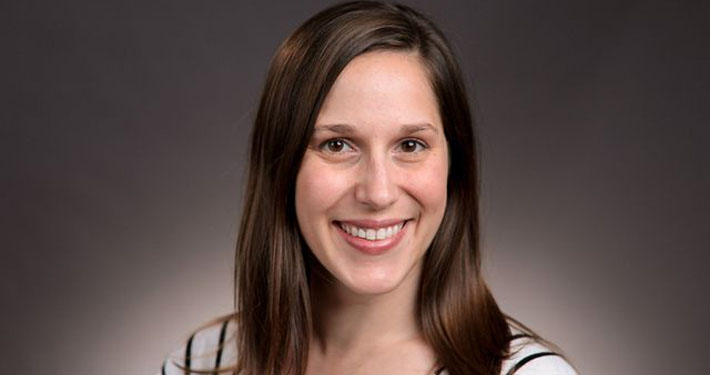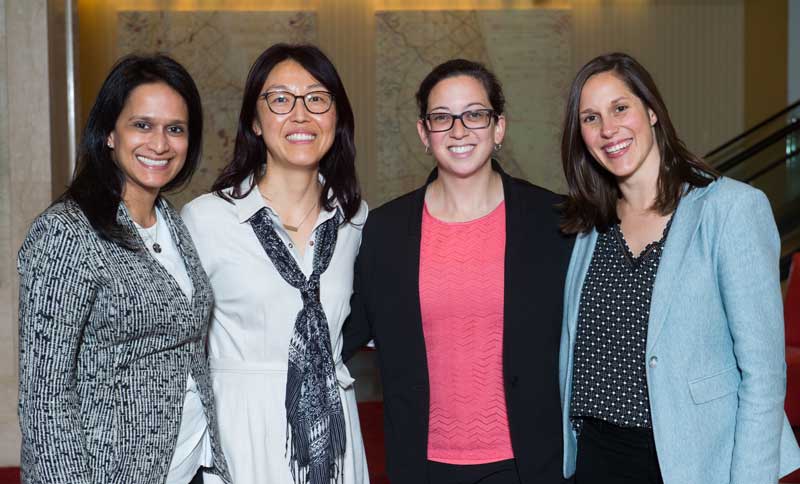
“The Visiting Scholars Program exposed me to areas of clinical assessment and education that I had not had the chance to engage with before. I highly recommend this experience.”
Trisha Marshall, MD, MSc
American Board of Pediatrics
Specialty: Pediatrics
Subspecialty: Pediatric Hospital Medicine
In March 2020, Trisha Marshall, MD, MSc was in Chicago with the members of her ABMS Visiting Scholars Program cohort when several people in the room received ominous email messages. Their institutions warned them that all travel was canceled due to the COVID-19 virus that was quickly spreading across the globe.
“It was pretty stressful as we just did not know what to expect,” said Dr. Marshall. “Little did we know that the world as we knew it was going to completely shut down and how big of an impact the pandemic was going to have on our families, communities, and healthcare systems.”
Like everything that year, the ABMS Visiting Scholars Program needed to quickly adapt to fulfill its mission of providing early-career physicians and research professionals with opportunities to develop as leaders and pursue relevant certification research. The in-person opportunities, such as meeting and presenting at ABMS Conference 2020, which is the culminating event of the program, had to pivot to a virtual format.
Dr. Marshall’s Visiting Scholars research project, Developing Tools to Identify Diagnostic Uncertainty in the Electronic Health Record, examined electronic health record data with the goal of improving the identification of patients with uncertain diagnoses. It is important that diagnostic uncertainty be recognized and clearly communicated in clinical practice to prevent cognitive biases such as premature closure or anchoring an incorrect diagnosis. Dr. Marshall’s project examined patterns in diagnostic code billing use, healthcare utilization, and linguistic patterns in clinical documentation associated with diagnostic uncertainty. Her research into this issue was co-sponsored by the Gordon and Betty Moore Foundation as part of the organization’s work to mitigate diagnostic error.

2019–2020, from left: Maya Iyer, MD, MEd; Laura Kim, MD; Rachel Frank, MD; and Trisha Marshall, MD
“In our study of clinical documentation, we were able to find distinct linguistic patterns associated with diagnostic uncertainty. This enabled us to develop a machine learning model that has the potential to better identify diagnostic uncertainty in clinical practice and to target interventions to prevent diagnostic error,” said Dr. Marshall. “To avoid error, a clinical team should be able to talk openly about diagnostic ambiguity with one another, as well as with the patient and family.”
Dr. Marshall has continued to focus her research on diagnostic uncertainty and diagnostic error. “I am interested in diagnostic uncertainty because it is an unavoidable reality of clinical practice. Uncertainty is not necessarily a bad thing, but the way that clinicians react to and communicate about uncertainty is critical to improving diagnostic safety,” said Dr. Marshall. She has published two studies from her ABMS visiting scholars project, including a study describing distinct diagnosis code and healthcare utilization patterns associated with diagnostic uncertainty and another describing the development of a machine learning model to detect diagnostic uncertainty in clinical documentation.
Dr. Marshall is an Assistant Professor at the University of Cincinnati College of Medicine and serves as a pediatric hospitalist at Cincinnati Children’s Hospital Medical Center. She shared, “Building authentic relationships with patients and their families is incredibly rewarding. It’s very humbling because there is always something new to learn in medicine, especially for those of us who work with medically complex pediatric patients.”
While she is board certified by the American Board of Pediatrics (ABP), she previously had not given much thought about the extraordinary work involved in creating a high-quality, relevant certification system. The ABMS Visiting Scholars experience afforded her first-hand insight into the board certification process.
“The Visiting Scholars Program exposed me to areas of clinical assessment and education that I had not had the chance to engage with before. I highly recommend this experience,” said Dr. Marshall.
